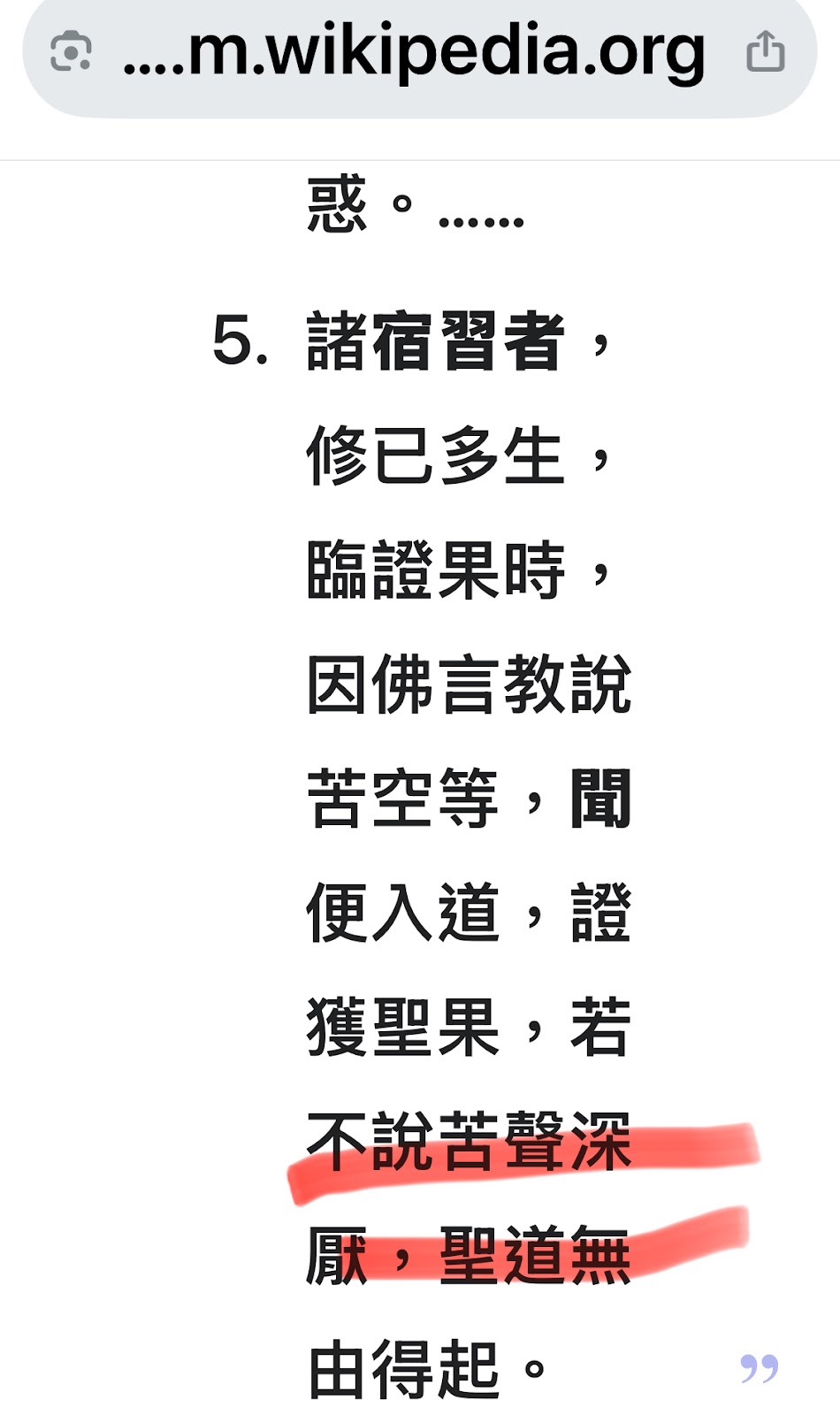七處徵心5
有關「大天五事」大天說的內容,
先說這裡:
證入聖道,從善根具足開始就已經在養成力量,
「根」可視爲不動搖的代表。
證入初果有了法眼淨可以看到前面的路該怎麼走,
對於善惡的拿捏更是超越,
佛法聖果位並不是儒家思想講的只是當個善人而已,
它必須具足一種力量跟智慧才能證入佛法聖果位,
入佛法聖果位,從初果到四聖果其實是一大段路的完備與成熟。
整個修行路培養出來的智慧跟力量是不容小覷的,
而從善根具足到初果的力量,就已經可以做很多事情。
我個人對佛陀強迫難陀的出家目前有不同的看法,
是不是佛陀自己在修行成功以後,
看到釋迦族的前途將被戰爭吞噬,
進而強迫釋迦族子弟出家,修行增加抵抗的力量-避難!
佛陀本身成就的事,跟做的事情就記載無數。
佛法修行是人去做修證,人群裡面會有不同的見解,
還有人修證後的世界,依然跟人世間有關聯。
見解不同造成的分裂可以接受,
但大天說證羅漢果位以後還是要常常說苦哉、苦哉,
感覺很好笑,他都沒有其他事可以做嗎?
因為羅漢果的力量可以做很多事,
不去做事情,
還在那裡天天說苦,
感覺根本是外行人的欺騙
再說,有些記載提及鈍根阿羅漢,有關四聖果的無色愛,
也就是精神世界的執著,
不具足相當的智慧是不可能超越的,
由此,鈍根阿羅漢必須再研究。
大天在這說法裡面把「苦跟空」都拉了進來,
看起來好像是佛法,
苦不用說,
「空」的問題根本就是思考題,那並不是你喊苦,就可以懂得,
相信佛學者願意在這裡深思,很多問題可以破解。
你要修的一定是讓你力量跟大腦思考程度進步的佛法,
而不是只是很苦的印度文化。
半寄
Seven Places the Mind is Sought 5
Let’s talk about the “five theses” of Mahādeva.
To reach the noble path, one starts by developing wholesome roots.
These roots already help build strength.
These “roots” symbolize immovability — unwavering stability.
When someone reaches the first stage of enlightenment (Sotāpanna), they gain “Dharma eye” and can clearly see how to walk the path ahead.
They understand good and evil in a much deeper way.
Becoming a Buddhist saint isn’t just about being a good person, like Confucianism says.
It takes real power and wisdom to reach these stages.
Entering the noble attainments in Buddhism—from the first fruit (Sotāpanna) to the fourth (Arahant)—is a long path of gradually clarifying and becoming familiar with the nature of the four fruitions, until one reaches a more complete understanding.The wisdom and strength gained from practice are truly powerful.
Even before reaching the first fruit, a practitioner can already do many helpful things.
I now see the Buddha’s decision to make Nanda become a monk in a different way.
Maybe after the Buddha became enlightened, he saw that the Śākya clan would face destruction in war.
So he encouraged or even forced young people from the clan to join the monkhood — to gain spiritual strength and protection.
There are many stories about what the Buddha achieved and did.
Buddhist practice is done by people, and people have different views.
Even after awakening, they’re still part of the human world.
So, it’s natural that people may have disagreements.
But it seems ridiculous that Mahādeva said arahants (enlightened ones) still often cry “Suffering! Suffering!”
Don’t they have other things to do?
Arahants have the power to do a lot. If they just sit there constantly lamenting suffering, it seems like a deception by someone who doesn’t understand the path.
Moreover, some texts mention dull-facultied arahants and their attachment to spiritual things (like formless realms).
Without sufficient wisdom, this cannot be overcome.
Therefore, dull-facultied arahants should be studied further.
In Mahādeva’s view, suffering and śūnyatā are both mentioned.
It sounds Buddhist on the surface, but suffering is one thing —“śūnyatā” is actually something that needs deep thinking.
It cannot be grasped merely by exclaiming about suffering.
I believe when earnest Buddhist scholars contemplate this deeply, many problems can be resolved through such reflection.
What you practice should help you strengthen both your inner power and the clarity of your mind— not just make you feel the pain of Indian culture.
Master Banji

沒有留言:
張貼留言